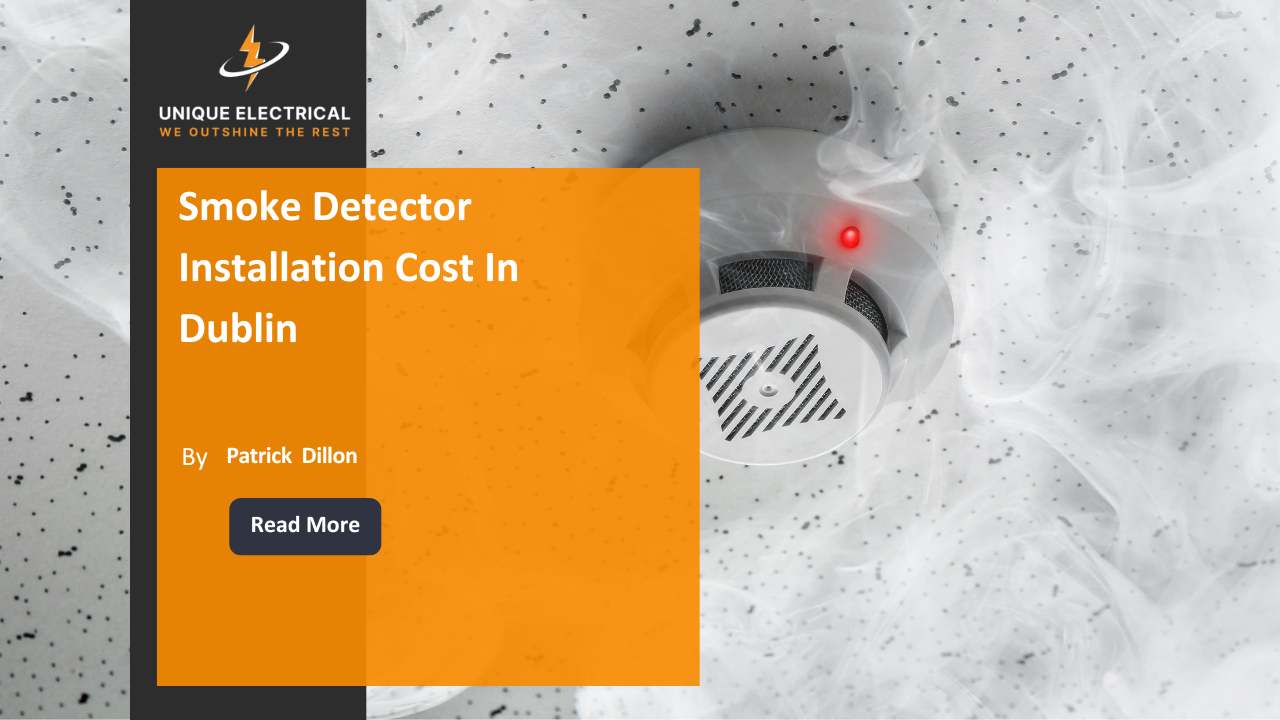Are you considering changing a wall socket in your home? When it comes to electrical modifications, knowing whether to hire a professional is crucial. For tasks like replacing a socket, understanding the need for an electrician can help you ensure safety and compliance with local regulations.
In Ireland, the qualifications and requirements for electricians can vary, making it important to know when professional help is necessary. In this blog, we will explore the reasons you might need to hire an electrician to change a wall socket.
So, let's start!
Do You Need an Electrician to Change a Wall Socket?
When considering whether to DIY or hire a professional for electrical work, it's crucial to understand the various factors that determine the need for a certified electrician. Here, we have listed the essential considerations.
Understanding the Complexity of Electrical Work
Changing a wall socket may seem like a simple task, but it involves dealing with electrical wiring, which can be complex and potentially dangerous. Electricians are trained professionals who understand the details of electrical systems.
They can ensure that the work is done safely and in compliance with local regulations. Attempting to change a socket without proper knowledge and experience can lead to mistakes that may compromise your home's electrical system.
Safety Concerns and Regulations
Safety is a primary concern when dealing with electrical work. Improper installation can lead to electric shocks, short circuits, or even fires. Electricians follow strict safety protocols and adhere to regulations to reduce these risks.
In many areas, electrical work must comply with local building codes, and a licenced electrician will ensure that all work is up to code. This not only protects your home but also maintains your insurance coverage, as non-compliant work can void your policy.
Tools and Equipment Required
Electricians have the right tools and equipment to perform the task efficiently. From voltage testers to wire strippers, they use specialised tools that the average homeowner might not possess. Using the correct tools not only speeds up the process but also ensures the job is done correctly.
Additionally, electricians are trained to handle unforeseen issues that might arise during the installation, such as outdated wiring or damaged components.
When to Call a Professional?
While some may attempt a DIY approach for minor electrical tasks, it’s crucial to know when to call a professional. If you encounter wiring that appears old or damaged, are unsure about the electrical layout of your home, need to change a socket in a hard-to-reach place, or have multiple sockets to change, it is best to hire an electrician.
They have the expertise to handle these complexities and ensure your electrical system is safe and functional.
What Are the Risks of DIY Socket Replacement?
Replacing a wall socket might seem like a straightforward DIY task, but it carries several risks that can lead to serious consequences. Understanding these risks can help homeowners decide whether to proceed on their own or to call a professional.
Electrical Shocks
One of the most immediate dangers of attempting to replace a socket without proper knowledge and precautions is the risk of electrical shock. This can occur if the power is not completely shut off or if the wires are handled improperly. Electrical shocks can be severe and life-threatening.
Fire Hazards
Improper installation of electrical sockets can lead to poor connections, which might cause overheating and potentially start a fire. Many home fires are caused by faulty electrical work, which, if not done correctly, can pose a significant risk. Ensuring that connections are secure and appropriate for the load is crucial to preventing overheating.
Compliance Issues
In many regions, electrical work must comply with specific codes and standards that ensure safety. DIY projects often run the risk of non-compliance, which can lead to problems when selling the home or even legal consequences if the installation leads to damage or injury.
Long-Term Electrical Problems
Incorrectly installed sockets can result in persistent problems such as flickering lights, tripping circuits, or malfunctioning outlets. These issues not only require further repairs but can also damage electrical appliances connected to the faulty sockets.
Voiding Home Insurance
Many home insurance policies require that electrical work be carried out by licensed professionals. DIY electrical work can void your home insurance coverage in the case of an accident related to the electrical system, leaving homeowners with significant financial liability.
How to Choose the Right Electrician for Your Needs?
Selecting the right electrician is crucial for ensuring quality, safety, and reliability in any electrical work at home. Here's how you can ensure you hire the best professional for your needs:
Check Qualifications and Licencing
The first step in choosing an electrician is to verify their qualifications and ensure they are licenced. In many regions, electricians are required to pass specific tests and obtain a licence to perform electrical work legally. Checking credentials not only confirms their capability but also ensures they adhere to local electrical codes and standards.
Review Experience and Specialisation
Experience matters when it comes to complex electrical work. Look for an electrician with extensive experience, especially in the type of work you need. Some electricians specialise in certain areas, such as residential wiring, commercial electrical needs, or emergency repairs. Choosing someone who specialises in your specific area of need can lead to better results.
Assess Reputation and References
A reputable electrician should have a solid track record. Ask for references and contact them to inquire about their experience with the electrician. Additionally, online reviews on platforms such as Google Sites can provide insights into the electrician’s reliability and quality of work.
Compare Quotes and Understand Pricing
Get quotes from several electricians to compare prices. However, don’t choose based solely on price. Understand what the quote includes and check for any hidden costs. A detailed quote should outline the costs for labour, materials, and any additional fees. This transparency helps avoid any unexpected charges.
Conclusion
We've explored the dangers of DIY electrical work, outlined the qualifications and expertise needed for such tasks, and offered guidance on choosing the right professional for your needs.
Ensuring safe and compliant electrical installations is important for your home’s safety and functionality. If you're unsure about handling electrical work yourself, consider hiring a professional from Unique Electrical.
Our certified electricians ensure safe, efficient, and up-to-code installations. Contact Unique Electrical today to discuss your electrical needs and how we can help ensure your home’s electrical safety and efficiency.












